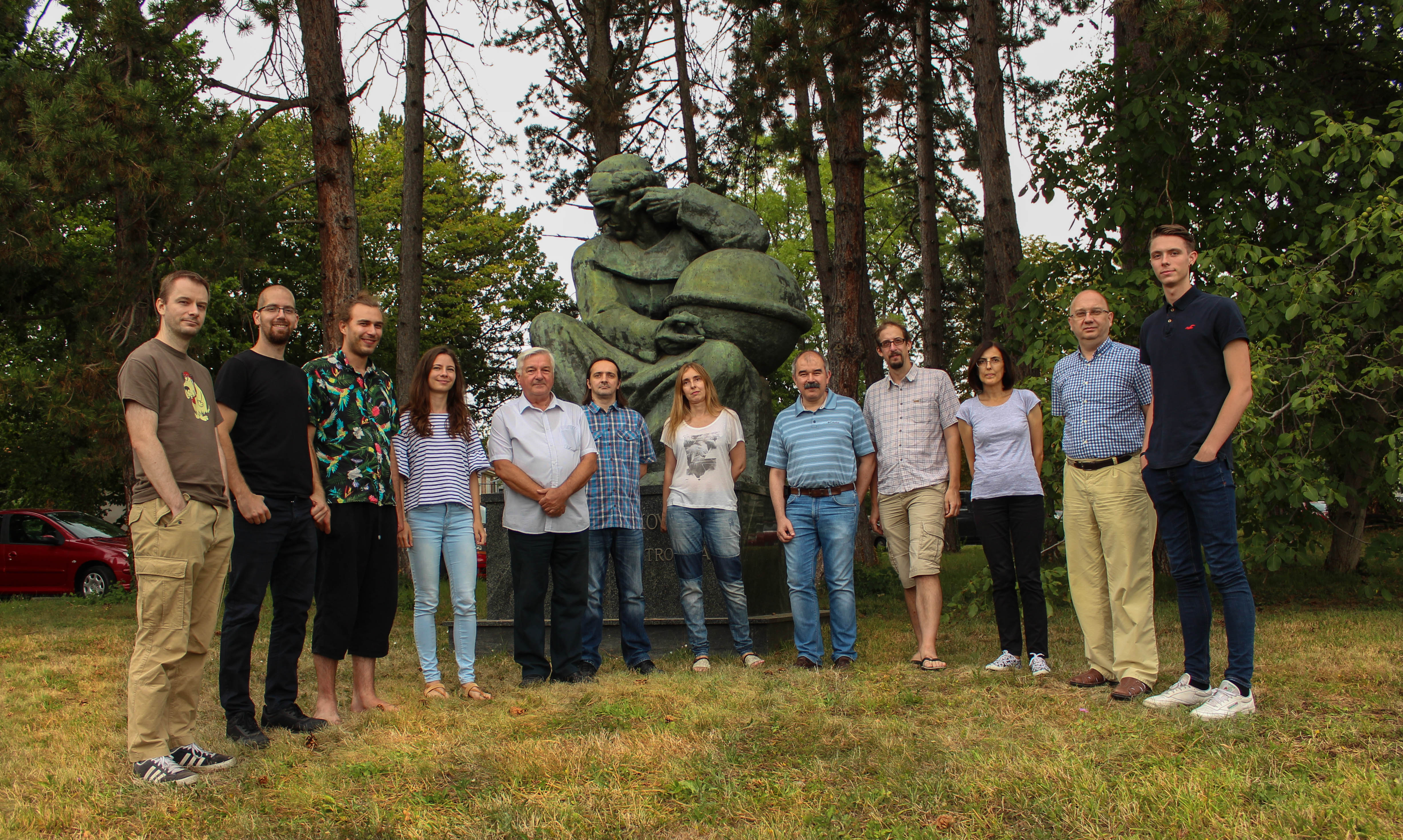Laboratory for solid state and complex compounds chemistry
The Laboratory for Solid State and Complex Compounds Chemistry (LSSCCC) was created by merging the Laboratory for Solid State Chemistry (LSSC) and the Laboratory for Complex Compounds Chemistry (LCCC). The reactions of intermetallic compounds with hydrogen as an environmentally friendly energy source are investigated in LSSC. Organometallic complex compounds and inorganic bioconjugates are investigated in LCCC in order to optimize catalysis in the synthesis of chiral pharmaceuticals, as well as other applications in biomedicine.
Head

The Laboratory for Solid State and Complex Compounds Chemistry (LSSCCC) was established in 2009 by merging the Laboratory for Solid State Chemistry (LSSC) and the Laboratory for Complex Compounds Chemistry (LCCC). Both components of today's laboratory were created in the Department of Structural and Inorganic Chemistry, shortly after the founding of the Ruđer Bošković Institute.
The first research in the Laboratory for Solid State Chemistry (LSSC) was oriented towards semiconductor materials, followed by more intensive research on nuclear fuels. Current research in this group is mainly focused on the reactions of intermetallic compounds with hydrogen or oxygen. These materials can be used as catalysts, hydrogen tanks in environmentally friendly energy sources. Members of LSSC are: Nikola Biliškov, Goran Miletić, and Andrea Knežević.
The Laboratory for Complex Compounds Chemistry (LCCC) has been intensively researching the chemistry and stereochemistry of complex transition metal compounds, compounds containing a direct chemical bond between metal atoms (metal clusters), and, in the 1980s, a high-temperature superconductors.
The current research topic of LCCC is the development of the chiral transition metal catalysts with an emphasis on inspiration from nature. The beta-turn structure is used as a key feature of chiral catalysts that mimic artificial enzymes with a minimal but functional chiral external coordination sphere. These enzymes can find application in the asymmetric synthesis of intermediates of drugs produced in the pharmaceutical industry. Members of the LKKS group are: Srećko Kirin, Berislav Perić, Sasa Opačak, Natalija Juraj-Pantalon, Marija Bakija and Ernest Sanders (technician).

